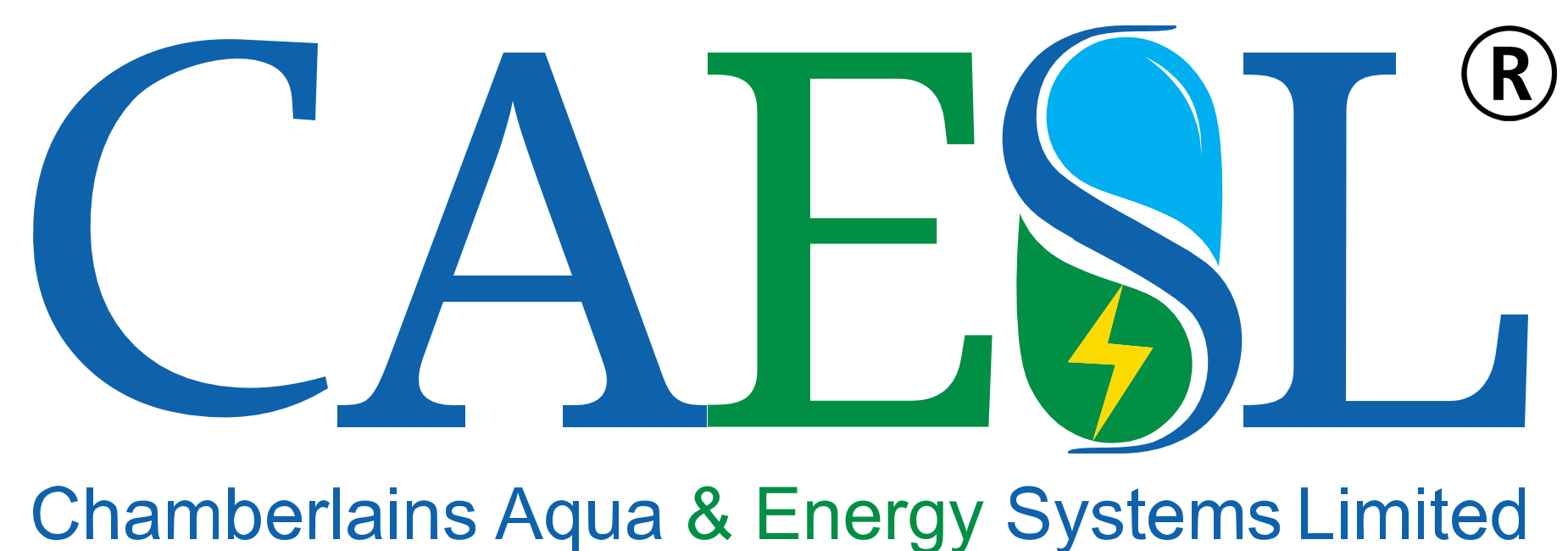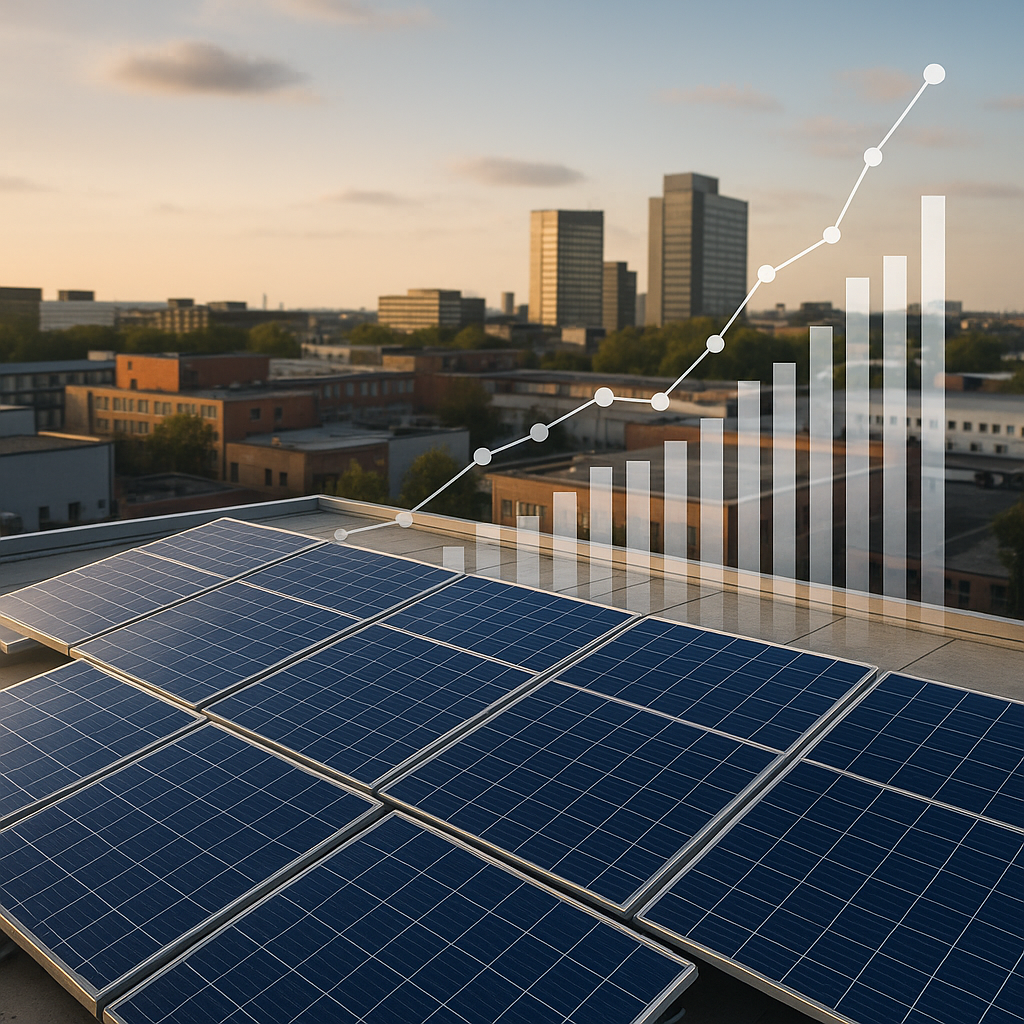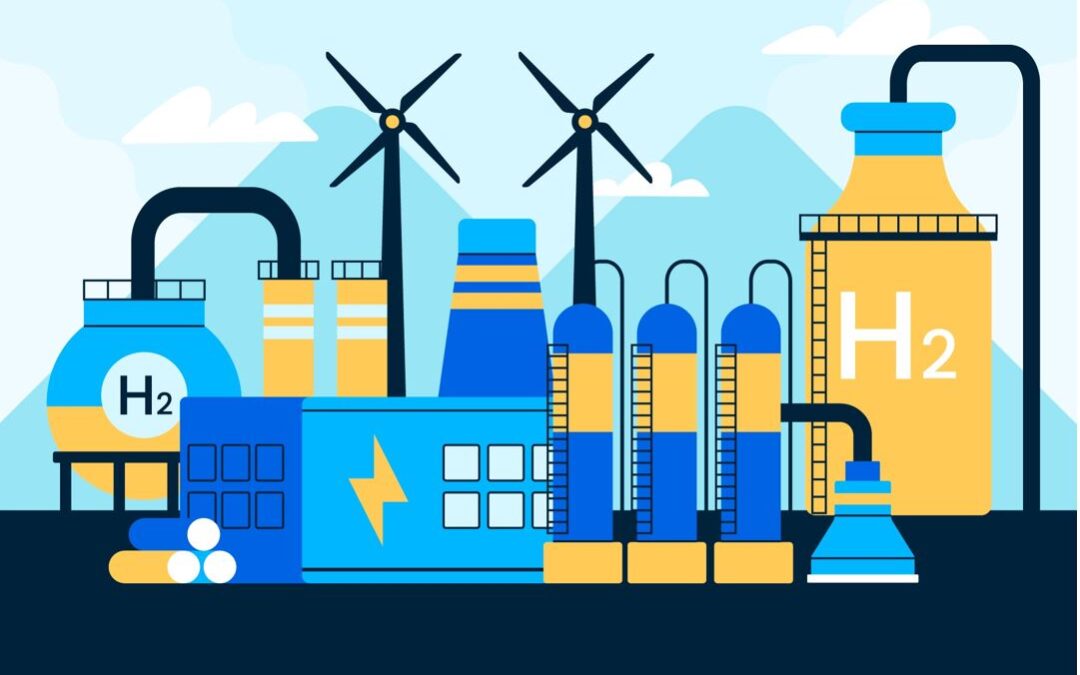In this article, we explore how Net Zero transformation—when approached intelligently—can generate revenue, cut costs, and strengthen long-term performance. From renewable energy adoption to investor confidence and customer retention, decarbonisation is no longer just good for the planet—it’s a clear commercial advantage. This is what we do at Chamberlains Aqua & Energy Systems Limited (CAESL): helping businesses and organisations turn climate goals into tangible financial returns.
In this blog post, we will explore five key ways intelligent decarbonisation drives financial performance:
- How energy efficiency translates into cost savings and income generation
- Why investors are favouring low-carbon leaders with credible Net Zero strategies
- How green innovation creates new revenue streams and market opportunities
- The role of sustainability in strengthening brand trust and customer loyalty
- And finally, how companies like CAESL are turning Net Zero into a business strategy, not just an environmental one
Let’s dive in.
Net Zero: From Cost Burden to Profit Driver
Net Zero is often seen through a compliance lens—responding to climate regulation or ESG pressure. But for forward-thinking businesses, it’s far more than that. Intelligent decarbonisation strategies are delivering measurable financial gains.
From CAESL’s experience working with clients on their Net Zero Roadmaps, we’ve seen first-hand how the transition to clean energy systems, like solar PV and energy monitoring technologies such as TASHEX, can unlock both immediate and long-term financial value. These aren’t just environmental upgrades—they’re business upgrades.
Energy Efficiency = Financial Efficiency
Renewable energy technologies are maturing fast. Solar PV, in particular, continues to lead the charge due to falling costs, increased output efficiency, and favourable policy incentives.
According to the International Energy Agency (IEA), global solar PV capacity is set to grow over 60% by 2030 (IEA, 2023). For businesses, this signals a major opportunity: solar investments can lower energy bills, open up revenue streams through surplus energy export, and reduce risk from grid price volatility.
In a project, CAESL identified a sustainable solution for a customer and demonstrated that improving energy system efficiency could generate savings of up to 50%, with a simple payback period of just 4 years. This clearly shows how intelligent upgrades can transform energy spend into a source of income.
Investors Prefer Low-Carbon Leaders
Net Zero isn’t just an operational move—it’s a capital markets differentiator. Investors are increasingly steering capital toward businesses with science-backed climate strategies.
Major institutional players like BlackRock have publicly committed to backing decarbonising firms. In fact, companies with verified Net Zero targets tend to show stronger share price stability, better credit ratings, and a lower weighted average cost of capital (London Stock Exchange Group, 2023).
In the UK and EU, regulations like SFDR and TCFD are raising expectations for climate disclosures. This is making it more attractive—for both equity and debt investors—to back companies with credible, transparent carbon reduction strategies.
For SMEs, this translates into better loan terms, more attractive investor prospects, and lower financing costs—all from taking climate action seriously.
New Revenue Streams Through Green Innovation
Sustainability is not just about reducing emissions—it’s a driver of product and service innovation. PwC UK has estimated that up to 40% of UK business revenue growth by 2030 could come from climate-aligned offerings.
Companies that innovate—whether through green products, smart building systems, or digital energy management—are tapping into rapidly growing markets. For example:
-
Siemens’ AI-driven energy optimisation in data centres cut electricity use by 25% (Wodecki, 2022).
-
Unilever’s sustainable brands have grown 50% faster than others (Roderick, 2017).
-
Ørsted transformed from a fossil-heavy utility to a green energy giant, doubling EBITDA while cutting carbon intensity by 87% (Segal, 2021).
At CAESL, our TASHEX technology and SOL-IQ (Solar Intelligence & Quality Telemetric Monitoring System) are designed precisely with this in mind: to help companies increase renewable performance while unlocking measurable financial returns.
Competitive Edge and Brand Trust
In both B2B and B2C markets, sustainability is influencing purchasing decisions. A 2024 PwC survey found that nearly half of UK consumers have stopped buying from brands perceived as unsustainable. The same research showed buyers are willing to pay a 9.7% premium for environmentally responsible products.
On the commercial side, businesses that fail to show decarbonisation progress may be excluded from supply chains—especially in infrastructure, public procurement, or manufacturing. Procurement criteria increasingly include carbon disclosure metrics and alignment with standards like SBTi or CDP.
Transparency matters. Companies that can demonstrate serious, data-backed sustainability efforts not only retain customers—they build stronger brands, win more tenders, and enhance their long-term resilience.
Conclusion: Net Zero Is Smart Business
Decarbonisation is no longer a cost centre—it’s a performance enabler. Whether through energy savings, new income streams, investor attraction, or market competitiveness, a well-planned Net Zero strategy drives financial results.
At CAESL, we support organisations on every step of this journey—from planning and modelling to implementation and performance tracking. And with innovations like TASHEX, we help ensure that sustainability investments deliver on their financial promise.
Article by: Jiale (Bella) Lu
References:
-
BlackRock, 2022. Larry Fink’s 2022 Letter to CEOs. BlackRock. Available at: https://www.blackrock.com/corporate/investor-relations/larry-fink-ceo-letter
-
Bettoli, A., Nyquist, S., & Wagner, R., 2021. Net-Zero Power: Long-Duration Energy Storage for a Renewable Grid. McKinsey & Company. Available at: https://www.mckinsey.com/business-functions/sustainability/our-insights/net-zero-power-long-duration-energy-storage-for-a-renewable-grid
-
Climate Action 100+, 2024. About Us. Climate Action 100+. Available at: https://www.climateaction100.org
-
Deloitte, 2023. 2023 Global Chief Procurement Officer Survey. Deloitte. Available at: https://www.deloitte.com/us/en/services/consulting/services/procurement-strategy.html
-
European Commission, 2021. Sustainable Finance Disclosure Regulation (SFDR). Available at: https://finance.ec.europa.eu/sustainable-finance_en
-
International Energy Agency (IEA), 2023. World Energy Investment 2023 – Event. IEA. Available at: https://www.iea.org/events/world-energy-investment-2023
-
KPMG UK, 2023. Over Half of UK Consumers Prepared to Boycott Brands Over Misleading Green Claims. KPMG. Available at: https://kpmg.com/uk/en/media/press-releases/2023/09/over-half-of-uk-consumers-prepared-to-boycott-brands-over-misleading-green-claims.html
-
London Stock Exchange Group, 2023. Green Economy Report 2023: Performance & Resilience of Net Zero Leaders. LSEG Sustainable Investment Research. Available at: https://www.lseg.com
-
PwC UK, 2023. Annual Report 2023. PwC. Available at: https://www.pwc.co.uk/who-we-are/annual-report/annual-report-2023.html
-
PwC UK, 2024. 2024 Voice of the Consumer Survey: Consumers Willing to Pay 9.7% Sustainability Premium. PwC. Available at: https://www.pwc.com/gx/en/news-room/press-releases/2024/pwc-2024-voice-of-consumer-survey.html
-
Roderick, L., 2017. Unilever’s Sustainable Brands Grow 50% Faster Than the Rest of the Business. Marketing Week. Available at: https://www.marketingweek.com/unilever-sustainable-brands-growth/
-
Segal, M., 2021. Ørsted Aims to Be World’s Leading Green Energy Major by 2030, Launches $57B Investment Plan. ESG Today. Available at: https://www.esgtoday.com/orsted-aims-to-be-worlds-leading-green-energy-major-by-2030-launches-57b-investment-plan/
-
Task Force on Climate-related Financial Disclosures (TCFD), 2017. Final Recommendations Report. TCFD. Available at: https://www.fsb-tcfd.org/publications/final-recommendations-report
-
Wodecki, B., 2022. Siemens Uses AI to Reduce Energy Output in Baltic Data Centres. AI Business. Available at: https://aibusiness.com/verticals/siemens-uses-ai-to-reduce-energy-output-in-baltic-data-centers




